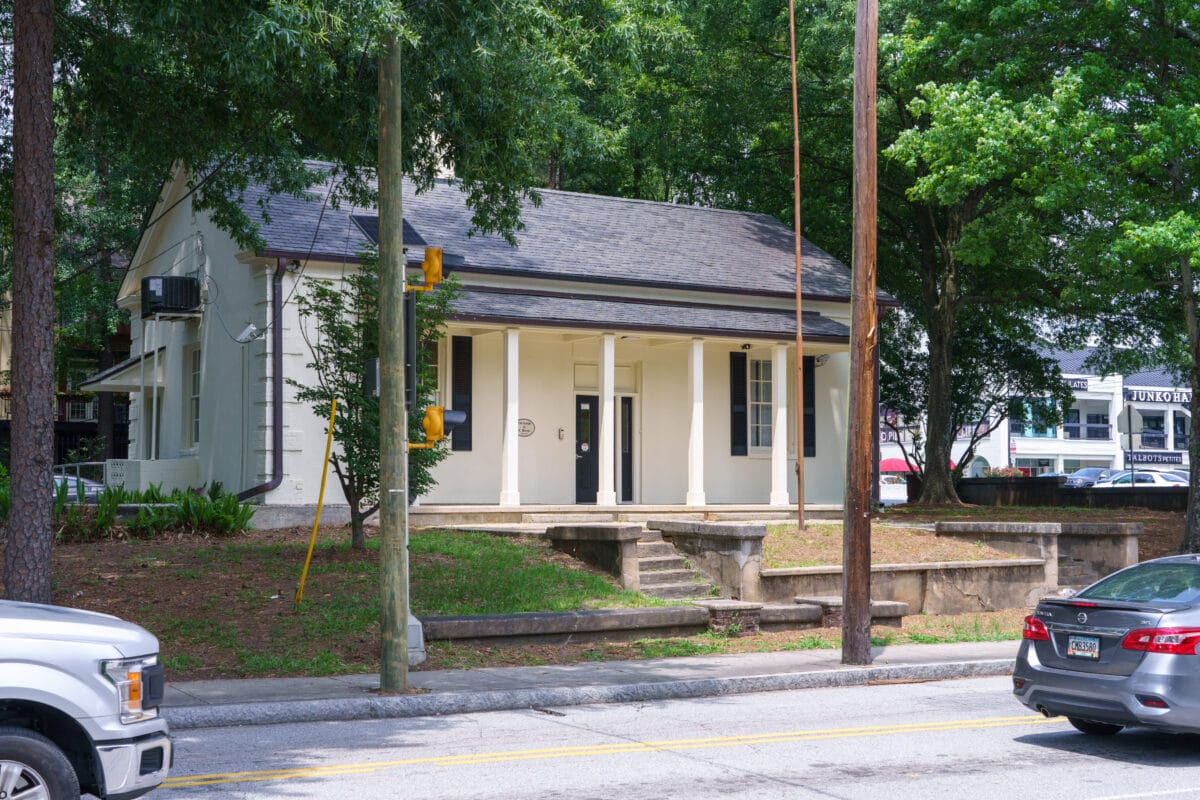The Lodge, an over 110-year-old house-like structure at Peachtree Battle Avenue and Peachtree Road, played a key role in Buckhead’s past. Now the question is where it fits into Buckhead’s future as Atlanta Public Schools (APS) has pegged it for sale as “surplus.”
Preservationists and community leaders are concerned, but have reason to hope the Lodge won’t join the neighborhood’s long list of lost historic structures. APS has a new system for prioritizing historic preservation and community input in plans for surplus buildings in which the Lodge figures prominently. And the Buckhead Heritage Society appears to be examining the feasibility of buying the building itself.
“Buckhead Heritage firmly believes that preserving and protecting the Lodge is of utmost importance,” said the historical society in a statement written by board member Thorton Kennedy. “As an advocacy organization committed to safeguarding Buckhead’s rich historical resources, we look forward to working collaboratively with APS to develop a comprehensive plan for the preservation of this significant building.”
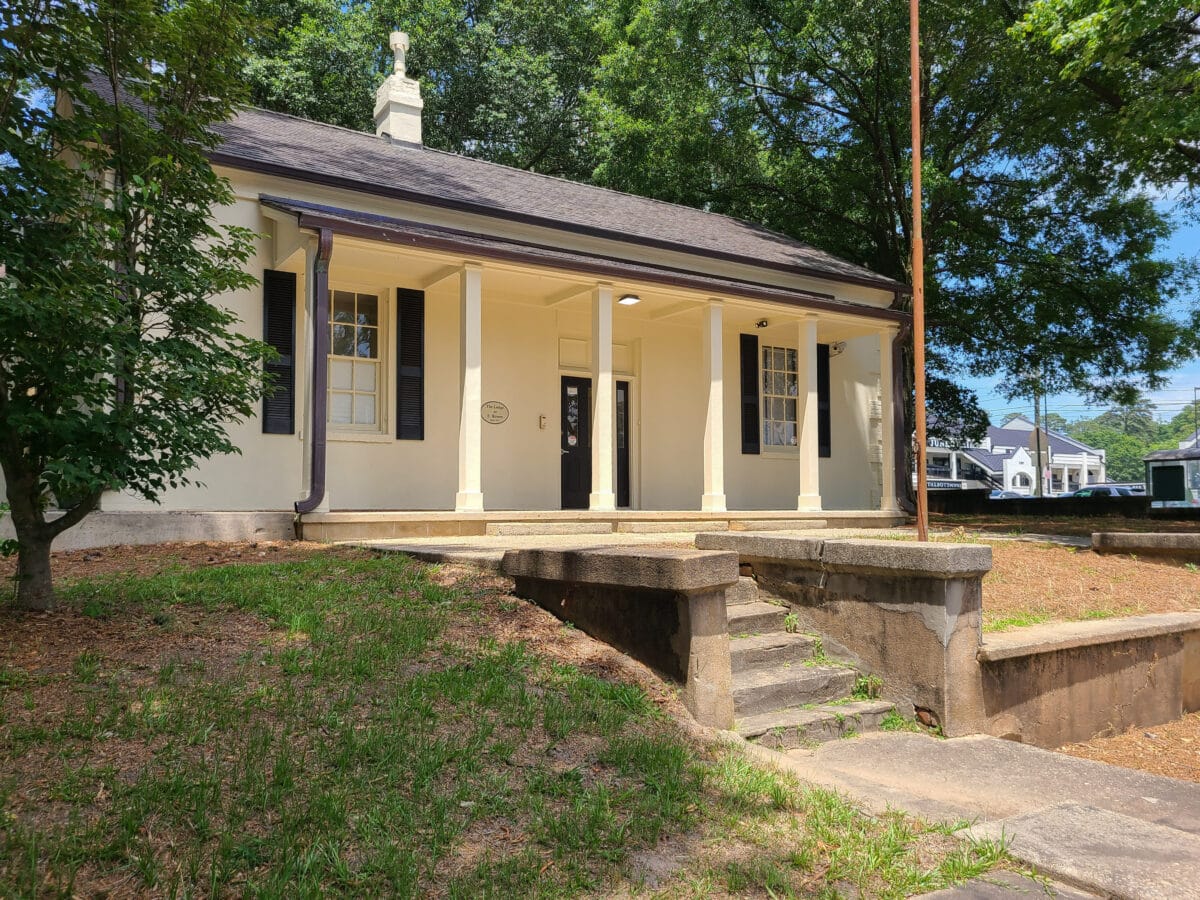
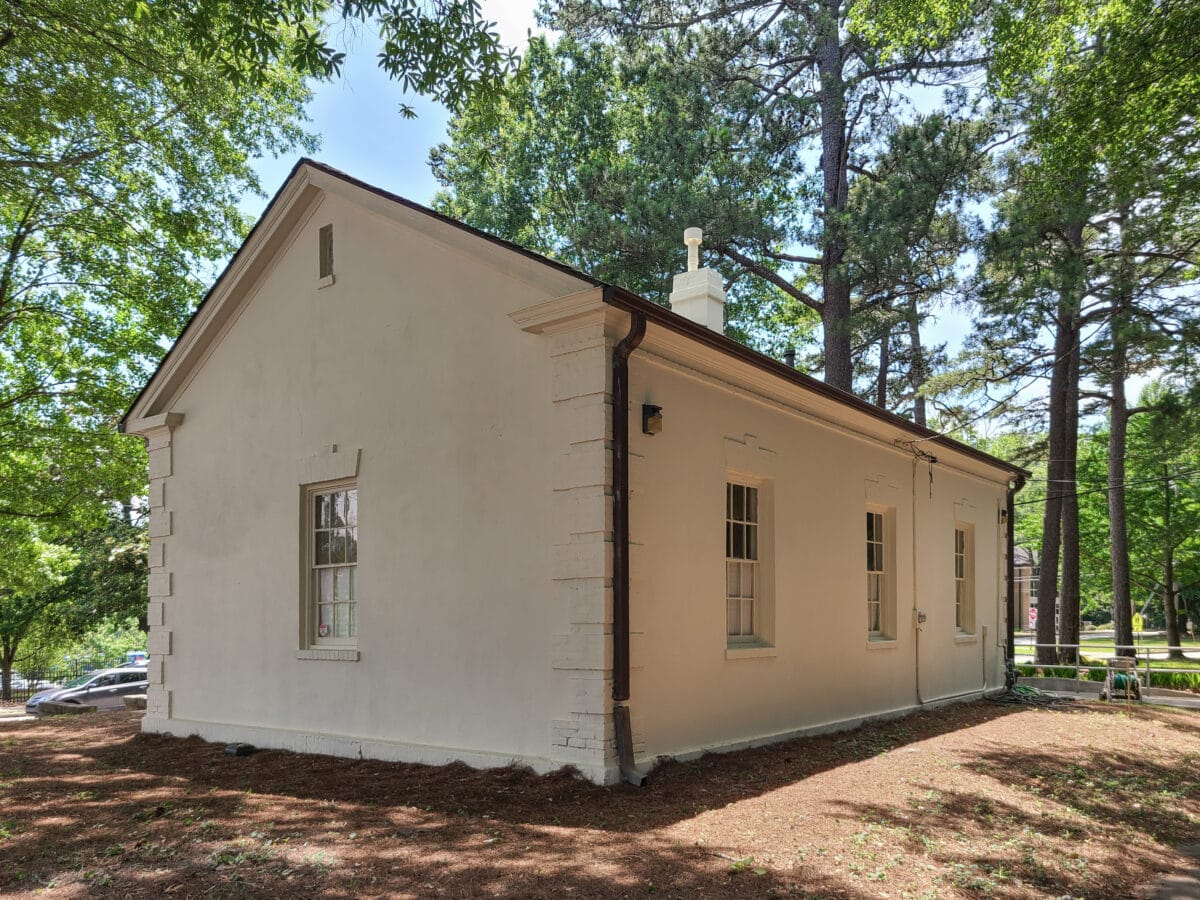
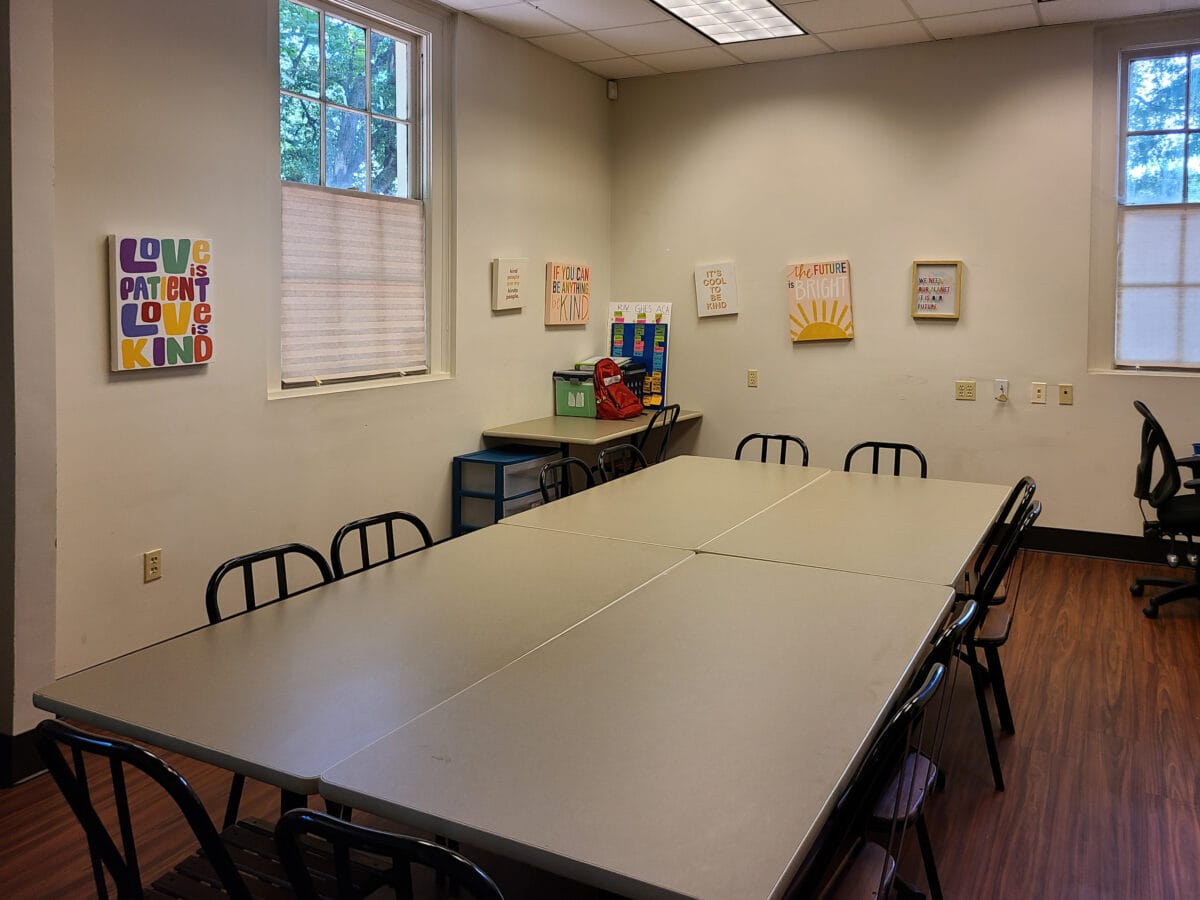
Dating to around 1909, the building at 2548 Peachtree Battle, next to APS’s E. River Elementary School, is known by a variety of names reflecting its long history, including the Bloodworth Kindergarten and the Little White House. School namesake Eretus Rivers built it – with a design by a famous New York firm – as a sales office for a new subdivision called Peachtree Heights Park – today’s Peachtree Heights West. It then passed into decades of other uses, including the kindergarten and a Daughters of the American Revolution (DAR) facility. Around 1930, it was donated to Fulton County – later passing to the City of Atlanta and then APS – with a deed restriction requiring public uses.
Challenges of use and preservation going forward
Today, the Lodge is occupied by the offices of an afterschool and summer school program called Kiddos Atlanta that, according to its program director, is planning to move out due to APS’s sales plan. APS did not respond to a comment request, but is embracing a new “historic inventory,” expected to be adopted later this year as part of the district’s strategic plan, that emphasizes preserving such buildings.
That system, created by the Atlanta Preservation Center (APC) after previous controversies over sales of former school buildings, spotlights the Lodge as one of APS’s most historically significant buildings. However, its initial assessment also emphasizes the reuse challenges of a small building sitting on what amounts to an oversized traffic island within Peachtree Battle Avenue.
“The most obvious use would be for it to be returned to the neighborhood or the City for use as a park, clubhouse or other such purpose,” wrote APC intern Ben Schmidt in the historic inventory assessment. “With the size of the lot and its awkward location, this is close to the largest building possible [on the site], and educational or daycare use is questionable with traffic speeding past right outside the door.”
On the other hand, the roughly three-year occupancy of Kiddos Atlanta shows the viability of ongoing use. Laura Dobson, a Buckhead resident and preservationist who advocated the successful partial preservation of the former National Book Bindery Company building just up the road, says the Lodge could be a similar “beacon for historic preservation.”
“It could operate as a museum with classes and events,” says Dobson. “It could come alive again. It’s small enough to keep. And big enough to use. And hopefully it will be enjoyed for many years to come.”
Preservation interests in the community
The Peachtree Battle Alliance (PBA), the civic association for the historic neighborhoods in the area, is also concerned.
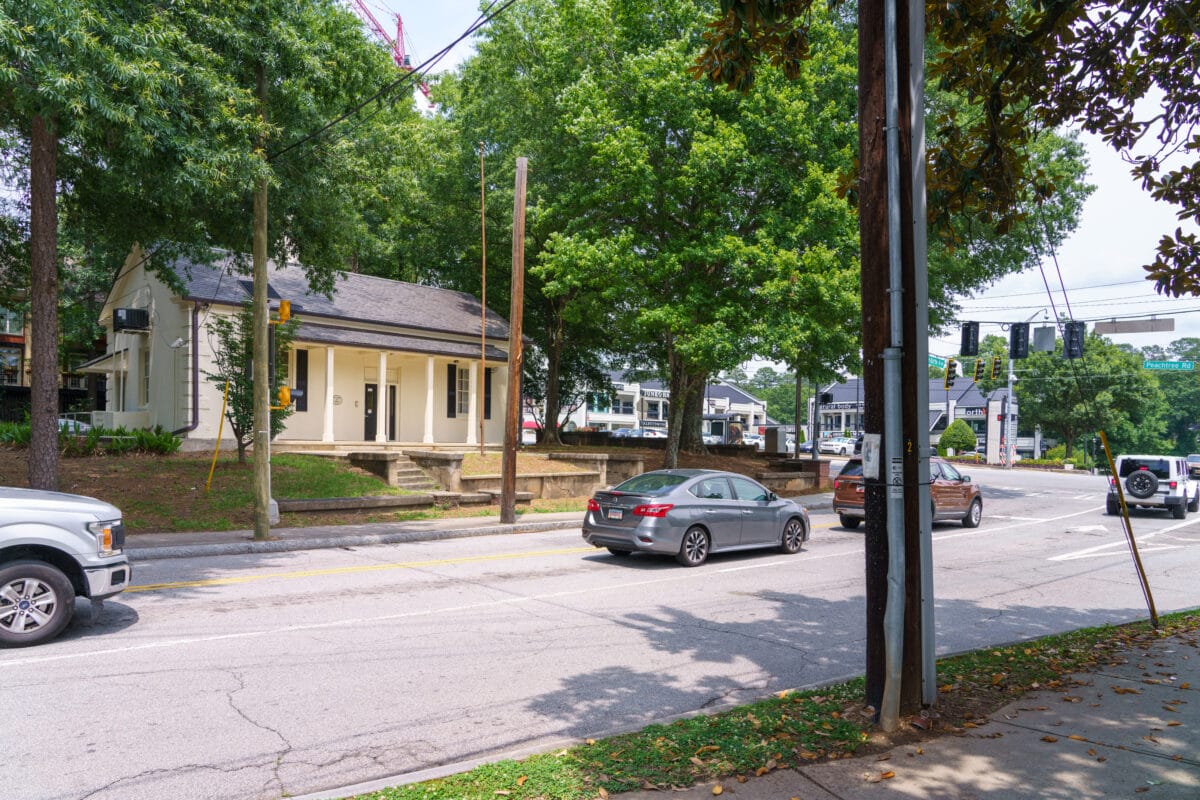
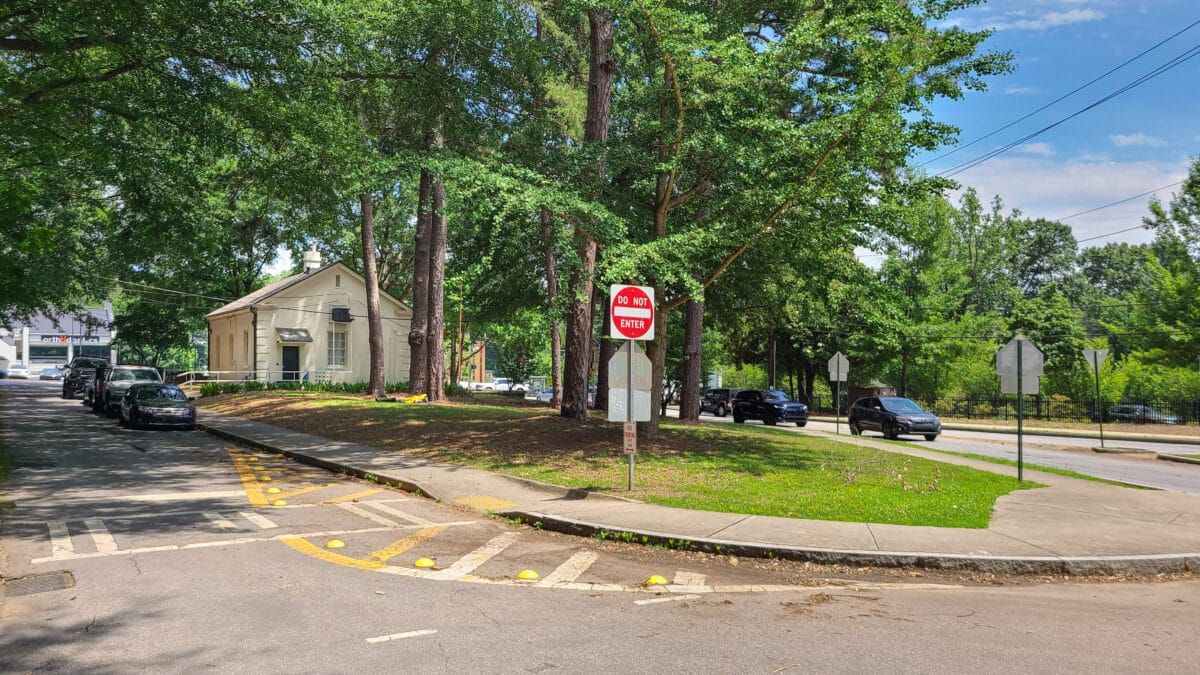
“Some creative thought around the future use of the building is needed,” says Kendra Adams, PBA’s co-president and communications chair. “That said, there are some opportunities and PBA definitely wants to be part of the conversation since [the Lodge] is the most significant entry point of our historic neighborhood.”
There’s a sense of urgency, as APS added the Lodge to its surplus list in recent months without local notice and recently repainted the structure. Kiddos Atlanta is planning to move its office to Northside Drive Baptist Church, where it also runs a program, according to programs manager Chay Westbrook.
Two Buckhead Heritage leaders – founder Wright Mitchell and board executive committee member John Beach – recently visited the property. According to Westbrook, they discussed interest in buying the Lodge, which organization officials would neither confirm nor deny.
“Our primary goal is to save the building for some compatible use for the community,” said Beach in response to questions about Buckhead Heritage’s possible purchase. “And that’s really what we want to focus on.”
Board president Charlotte Margolin also would not directly comment on the potential interest in buying the building. But she noted another Rivers legacy in her neighborhood of Peachtree Heights East, on the other side of Peachtree Road. Rivers was involved in that development as well, and after his death, his wife deeded land to the neighborhood for common green space. Today, that’s the Duck Pond, a privately run community jewel.
Margolin said that Buckhead Heritage’s focus is making sure the public-use intent of the Lodge’s deed restrictions are followed. “It’s really important to honor folks who donate and follow their instructions,” she said.
A small building with big historical significance
The Lodge has a rich cultural and architectural history that, at the least, probably makes it a candidate for listing on the National Register of Historic Places, according to the APS historic inventory report.
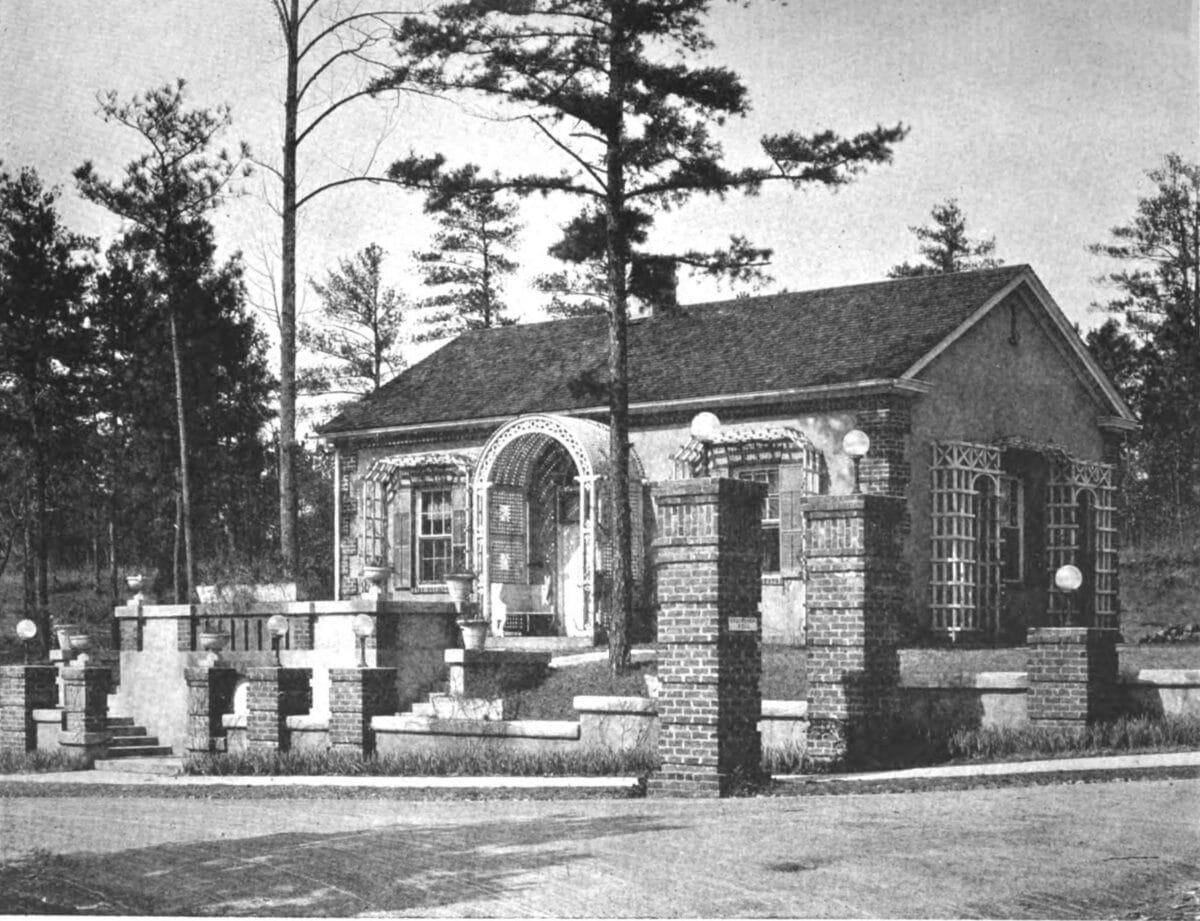

Its architects were the firm Carrère & Hastings, which also was involved in the overall Peachtree Heights Park plan. The New York City-based firm designed several iconic buildings, including the main branch of the New York Public Library and the Russell Senate Office Building in Washington, D.C. The Lodge was featured in a 1913 issue of the magazine “American Architect.” The core building is largely the same as in the photos, though arbors around the door and windows are gone and partly replaced at some point with a columned porch. Only partly intact today are lamp-topped brick pillars flanking the entrance.
The cultural significance starts with the Lodge’s key role in the creation of an entire Buckhead neighborhood – today on the National Register as the Peachtree Heights Park Historic District – from the former Collier estate. Rivers’ E. Rivers Realty Company played a role, along with such entities as the Peachtree Park Heights Company, in the plan and its land sales. Planning began in 1906, with the first lots sold in 1911.
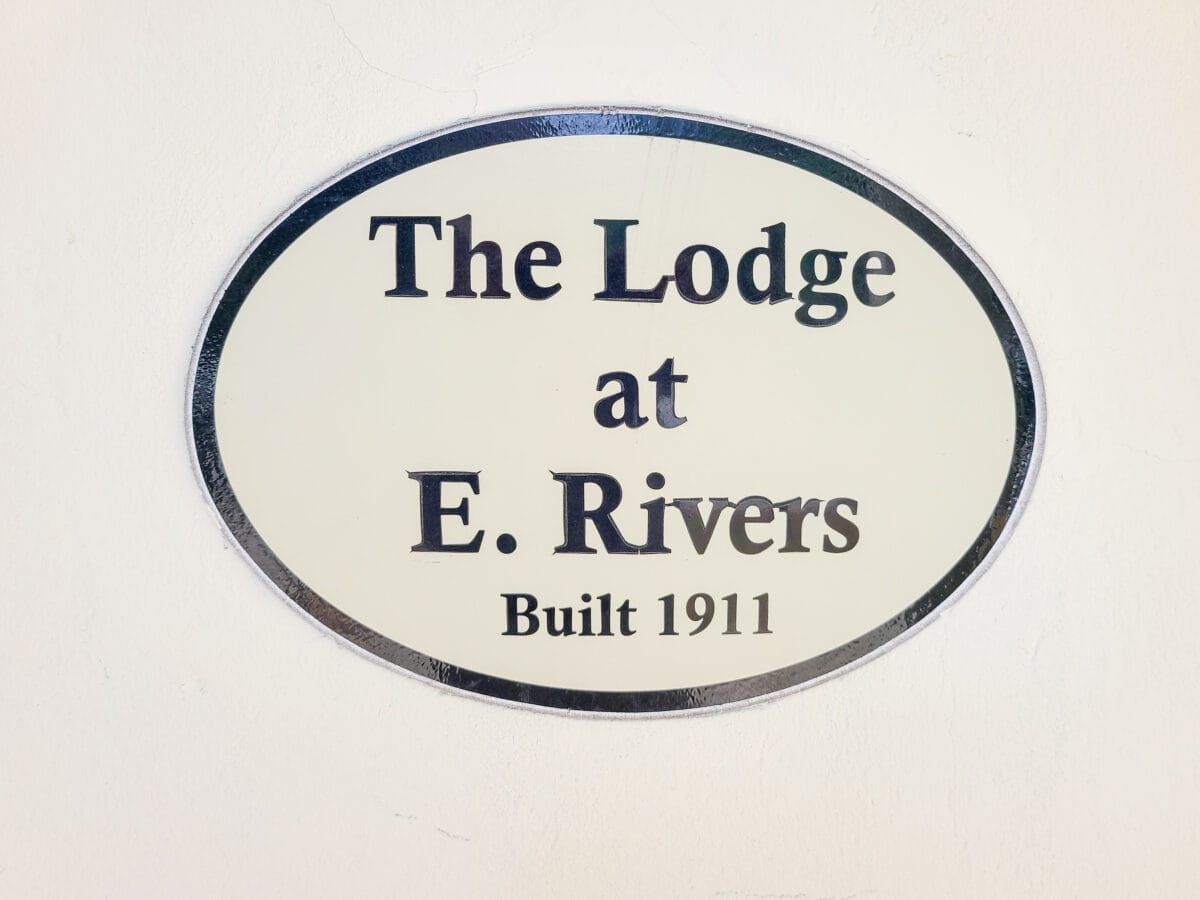
Rivers – who at one point served on the Atlanta Board of Education – also donated the land across the street for what is now E. Rivers Elementary. It opened in 1917 as the Peachtree Heights School, with the renaming for Rivers in 1926. The original school burned in 1948, but its 1950 replacement is itself significant enough to make the top tier of buildings worth preserving in the APS historic inventory report. Others in Buckhead include Garden Hills Elementary and Atlanta International School in the former North Fulton High.
Public uses of the Lodge began in June 1911, when a local DAR chapter took over and hosted public events.
Another locally significant use was Mary Hardwick Bloodsworth’s private kindergarten, which operated from 1930 to around 1950. According to a recent Northside Neighbor column by Kennedy, Bloodworth began teaching children in a neighbor’s Druid Hills home after her husband died. Beach says Rivers offered the Lodge to Bloodworth’s booming kindergarten in late 1929. Beach suspects the infamous stock market crash roughly a month earlier played into Rivers’ decision to get the school tenant.
The kindergarten was not a part of the Atlanta school system, but many of its students attended E. Rivers Elementary. Bloodworth retired about two years before her death in 1952, according to Kennedy.
During those school years, in 1937, the Peachtree Heights Park Company essentially donated the land for $1 to Fulton County. Until that time, according to Beach, the Lodge site was not a separate property, but rather part of the common land of the subdivision owned by the company.
Civil War connection
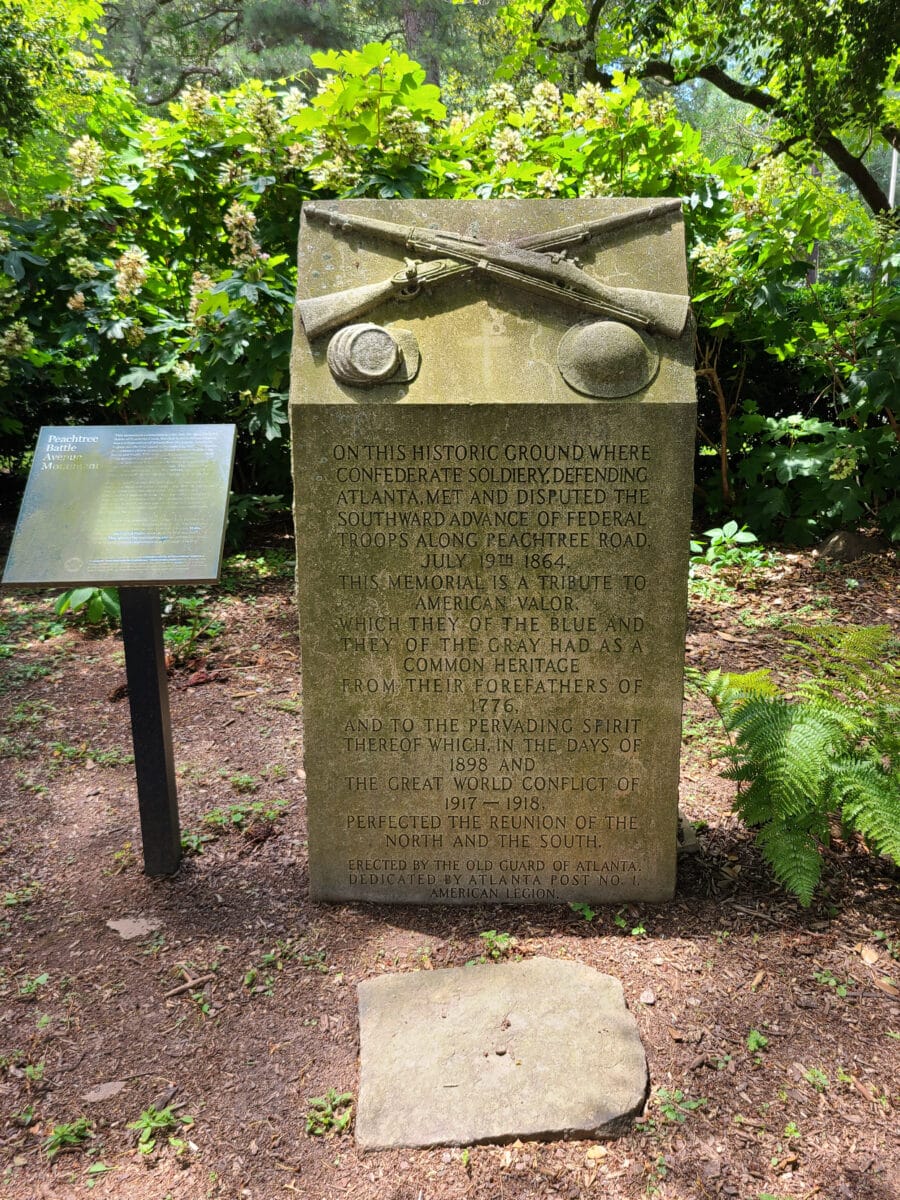
The donation tied into yet another piece of local history that did not come to fruition, according to Beach: a grand plan for a Civil War memorial park stretching from the Kennesaw battlefield to Stone Mountain, site of a notorious Confederate monument. The park pathway would have run through Buckhead. As the name of Peachtree Battle Avenue suggests, the Civil War Battle of Peachtree Creek – a key part of the battle for Atlanta – was fought in the area.
Today, the nearby Atlanta Memorial Park is a surviving part of that battlefield. But the original park plan included a green space of donated land that still exists in a median along Peachtree Battle Avenue between Peachtree Road and Dellwood Drive. (The rest of the street is undivided in part because another developer took back donated land after the park plan’s failure.)
In 1935, a Confederate veterans group erected a Civil War memorial that still stands in the median in front of E. Rivers Elementary, about 250 feet west of the Lodge. Other developers in the area donated property for the plan, according to Beach, who says the family of Rivers – who died in 1932 – probably were involved in the Lodge donation idea.
Property use and restrictions
Beach says it’s unclear if the 1937 donation of the Lodge site to the County was intended to be permanent or temporary. Regardless, a deed restriction that came with the deal remains in effect – including through later transfer of the land to the City and, in 2018, to APS.
That restriction says the property “shall be used only for museum, monumental, educational, park or other like purpose, except that the County is authorized to use a part of said property for widening one or more of the surrounding roads or avenues, and upon failure of the county to use said property for any one of the above purposes the same shall revert to grantor or its assigns.”
That deed restriction, as well as the unusual location, may be both bane and boon for viable reuses of the historic structure. Buckhead Heritage said in its statement that it is reaching out to Board of Education and Atlanta City Council members for more information about possible preservation.
“We will remain actively involved in the preservation efforts for The Lodge and advocate for its recognition as an important cultural asset that contributes to the unique character of the neighborhood,” the group said.
“It’s literally where the neighborhoods of Peachtree Battle began,” said Dobson of the Lodge. “… These small buildings can be taken for granted in a world where bigger is better. But they are so important to the depth of a community. If they are saved, if they continue to be loved, they can continue to make memories.”

